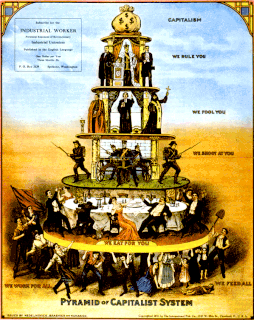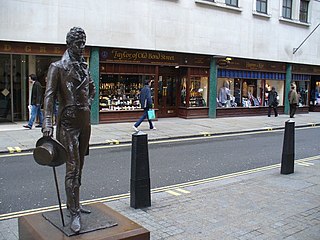
An announcer is a person who makes "announcements" in an audio medium or a physical location.
A role model is a person whose behaviour, example, or success is or can be emulated by others, especially by younger people. The term role model is credited to sociologist Robert K. Merton, who hypothesized that individuals compare themselves with reference groups of people who occupy the social role to which the individual aspires., an example of which is the way young fans may idolize and imitate professional athletes or entertainment artists.

The news media or news industry are forms of mass media that focus on delivering news to the general public or a target public. These include print media, broadcast news, and the Internet.

In journalism and mass media, sensationalism is a type of editorial tactic. Events and topics in news stories are selected and worded to excite the greatest number of readers and viewers. This style of news reporting encourages biased or emotionally loaded impressions of events rather than neutrality, and may cause a manipulation to the truth of a story. Sensationalism may rely on reports about generally insignificant matters and portray them as a major influence on society, or biased presentations of newsworthy topics, in a trivial, or tabloid manner, contrary to general assumptions of professional journalistic standards.
The blogosphere is made up of all blogs and their interconnections. The term implies that blogs exist together as a connected community or as a social networking service in which everyday authors can publish their opinions.
Agenda-setting describes the "ability to influence the importance placed on the topics of the public agenda". The study of agenda-setting describes the way media attempts to influence viewers, and establish a hierarchy of news prevalence. Nations with more political power receive higher media exposure. The agenda-setting by media is driven by the media's bias on things such as politics, economy and culture, etc. The evolution of agenda-setting and laissez-faire components of communication research encouraged a fast pace growth and expansion of these perspectives. Agenda-setting has phases that need to be in a specific order in order for it to succeed.
News values are "criteria that influence the selection and presentation of events as published news". These values help explain what makes something "newsworthy".
In media studies, mass communication, media psychology, communication theory, and sociology, media influence and media effects are topics relating to mass media and media culture's effects on individual or an audience's thoughts, attitudes, and behavior. Whether it is written, televised, or spoken, mass media reaches a large audience. Mass media's role and effect in shaping modern culture are central issues for study of culture.
Michael Alan Messner is an American sociologist. His main areas of research are gender and the sociology of sports. He is the author of several books, he gives public speeches and teaches on issues of gender-based violence, the lives of men and boys, and gender and sports.
Frame analysis is a multi-disciplinary social science research method used to analyze how people understand situations and activities. Frame analysis looks at images, stereotypes, metaphors, actors, messages, and more. It examines how important these factors are and how and why they are chosen. The concept is generally attributed to the work of Erving Goffman and his 1974 book Frame analysis: An essay on the organization of experience and has been developed in social movement theory, policy studies and elsewhere.
Music television is a type of television programming which focuses predominantly on playing music videos from recording artists, usually on dedicated television channels broadcasting on satellite, cable, or Streaming Platforms.
In the social sciences, framing comprises a set of concepts and theoretical perspectives on how individuals, groups, and societies organize, perceive, and communicate about reality.

A number of propaganda techniques based on social psychological research are used to generate propaganda. Many of these same techniques can be classified as logical fallacies, since propagandists use arguments that, while sometimes convincing, are not necessarily valid.
Mediatization is a process whereby the mass media are influencing other sectors of society, including politics, business, culture, entertainment, sport, religion, education, etc. Mediatization is often understood as a process of change or a trend, similar to globalization and modernization, where the mass media are integrated to an increasing degree into other sectors of the society. Political actors, opinion makers, business organizations, civil society organizations, and others have to adapt their way of communication to a form that suits the needs and preferences of the mass media – the so-called media logic. Any person or organization who want to spread their messages to a larger audience have to adapt their messages and communication style to make it attractive for the mass media.

Atholl Douglas (Paddy) Whannel was a key figure in the educational work of the British Film Institute (BFI) throughout the 1960s. He officially joined the faculty at Northwestern University, Evanston, Illinois in 1972 and taught there until his death in 1980.
The Fifth Estate is a socio-cultural reference to groupings of outlier viewpoints in contemporary society, and is most associated with bloggers, journalists publishing in non-mainstream media outlets, and the social media or "social license". The "Fifth" Estate extends the sequence of the three classical Estates of the Realm and the preceding Fourth Estate, essentially the mainstream press. The use of "fifth estate" dates to the 1960s counterculture, and in particular the influential The Fifth Estate, an underground newspaper first published in Detroit in 1965. Web-based technologies have enhanced the scope and power of the Fifth Estate far beyond the modest and boutique conditions of its beginnings.
Jackson T. Katz is an American educator, filmmaker, and author. He has created a gender violence prevention and education program entitled 'Mentors in Violence Prevention', which is used by U.S. military and various sporting organizations.

Metrosexual is a portmanteau of metropolitan and sexual coined in 1994, describing a man of ambiguous sexuality, who is especially meticulous about his grooming and appearance, typically spending a significant amount of time and money on shopping as part of this.
The Canadian political blogosphere includes political commentary using any social media technology. Its culture differs from that of Europe or the US. The term 'blogosphere' was first formed colloquially in 1999, and has since evolved to mean "the cultural or intellectual environment in which blogs are written and read."

Multimedia journalism is the practice of contemporary journalism that distributes news content either using two or more media formats via the Internet, or disseminating news report via multiple media platforms. It is inseparably related to the media convergence of communication technologies, business integration of news industries, and editorial strategies of newsroom management.






